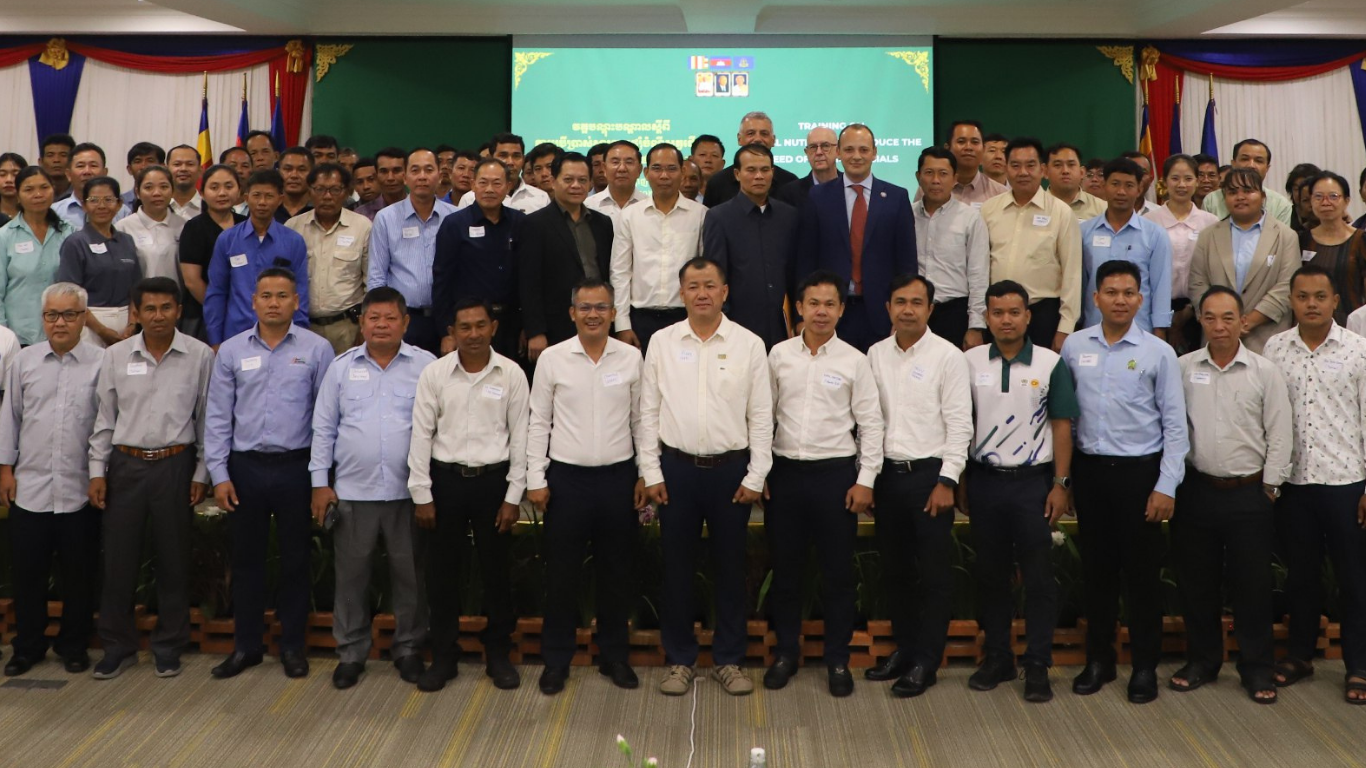A major regional push to reduce antimicrobial use (AMU) in animal farming took place in Siem Reap this week, as over 100 stakeholders from across the livestock value chain attended a three-day Training Workshop on Animal Nutrition to reduce the Need for Antimicrobials.
Participants included animal farmers, provincial veterinarians, feed regulators, feed producers, and academic researchers, who came together to explore science-based strategies that can reduce reliance on antimicrobials—especially as growth promoters—and improve livestock productivity.
Organised under the FAO-led ACT (Action to Support Codex AMR Texts) project, the workshop highlighted the importance of animal nutrition and feed quality in promoting sustainable, low-AMU livestock systems. Key training modules covered:
- Ration formulation and targeted feeding strategies
- Feed manufacturing and safety standards
- Biosecurity and good farming practices
- Responsible use of antimicrobials
- Regulatory updates and industry collaboration
The workshop’s outcomes are expected to benefit poultry, swine, and ruminant sectors, where feed efficiency and health management remain central to reducing AMU and tackling foodborne antimicrobial resistance (AMR).
🐄 Livestock Data Highlights from Siem Reap:
- 246,000 cattle and buffalo
- 181,000 pigs
- Over 4 million poultry (2024 estimates)
The event stressed the One Health approach, linking responsible feed and veterinary practices to broader goals in public health, food safety, and smart agriculture. Cambodian authorities and FAO officials reiterated the urgent need for policy reforms, enhanced farm-level biosecurity, and better surveillance of AMR in the food production chain.
🔬 FAO and Government Collaboration
The workshop received technical support from the Government of the Republic of Korea, the FAO Regional Office for Asia and the Pacific (RAP), and Cambodia’s Ministry of Agriculture, Forestry and Fisheries (MAFF).
Discussions included strategies to:
- Strengthen feed regulation compliance
- Encourage farmer education on antibiotic alternatives
- Improve data collection on livestock feed and per capita meat consumption
- Align with Codex standards for AMR mitigation
These lessons are highly relevant to countries like India, where antimicrobial overuse in dairy and poultry farming is a growing concern. Integrating nutritional best practices and biosecurity protocols can directly support sustainable dairy farming, reduce input costs, and foster consumer trust in the quality of milk and meat.







